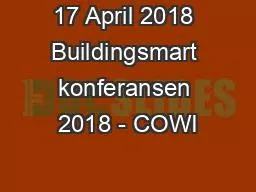PPT-Lecture 20 Mar. 26, 2018
Author : test | Published Date : 2018-09-29
Constitutional Restrictions on Choice of Law 14 th Amendment nor shall any state deprive any person of life liberty or property without due process of law Article
Presentation Embed Code
Download Presentation
Download Presentation The PPT/PDF document "Lecture 20 Mar. 26, 2018" is the property of its rightful owner. Permission is granted to download and print the materials on this website for personal, non-commercial use only, and to display it on your personal computer provided you do not modify the materials and that you retain all copyright notices contained in the materials. By downloading content from our website, you accept the terms of this agreement.
Lecture 20 Mar. 26, 2018: Transcript
Download Rules Of Document
"Lecture 20 Mar. 26, 2018"The content belongs to its owner. You may download and print it for personal use, without modification, and keep all copyright notices. By downloading, you agree to these terms.
Related Documents














